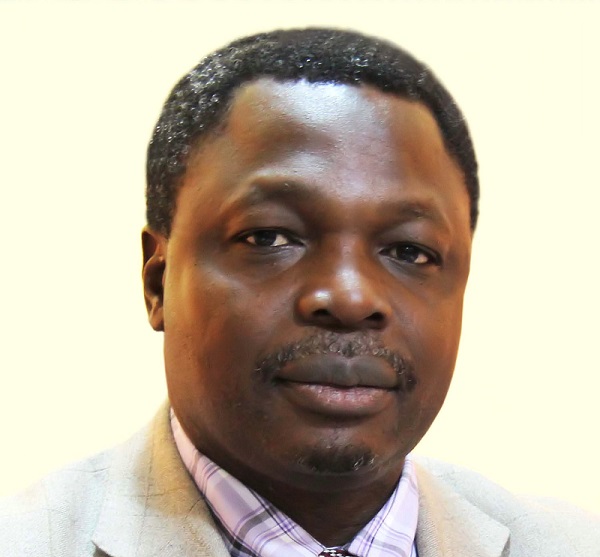
Professor Taiwo Lateef Sheikh wants suicide prohibition laws repealed because they inadvertently contribute to an increase in suicide rates across Africa
SPECIAL REPORT | BIRD AGENCY | Suicide prevalence rates in Africa are the world’s highest, estimated at 11 people per 100,000 per year, against a global average of 9 per 100,000 people, according to the World Health Organisation’s estimates.
While African countries have undertaken a range of efforts to provide mental health support, including prioritising mental health in national and regional health strategies, legislative gaps pose a threat to these efforts.
A new campaign that seeks to advance suicide prevention and support is advocating the decriminalisation of suicide in at least eleven countries in Africa where attempting suicide remains illegal.
In an interview with bird story agency, Nigerian professor of psychiatry Taiwo Lateef Sheikh, who leads the LifeLine International campaign in Africa, shared details of the “Decriminalise Suicide Worldwide Campaign” – including why it is important to scrap the law and what should be put in place as alternatives.
Could you start by providing an overview of what this campaign is about?
The campaign is looking at barriers that limit people from being able to seek help and support, and those that limit people from helping those who have issues with suicide within our communities.
One of the major barriers is the law that criminalises attempted suicide. We are undertaking the campaign all over the continent as part of the global campaign seeking to expunge the law that criminalises suicide attempts in various countries.
Suicide cases have reached a crisis point globally, and Africa is part of the world, but there is an inequitable overrepresentation of suicide within the region of Africa. We are pushing very hard to ensure that we remove the law that criminalses attempted suicide. This way, we want to be able to allow people to seek help and to allow other people to help them.
Why is criminalising suicide not an effective approach to lowering suicide attempts?
Over time, research, experience, and practice have demonstrated that criminalising suicide does not work. While it attempts to stop people from killing themselves, which is a good thing, it does not address the root cause of the problem, the thoughts.
Thoughts are in the mind, and from experience, they keep coming because certain things have happened to an individual’s mind. These thoughts are not about dying. They are about ending suffering existing from a problem that has led to that feeling of worthlessness. The law does not go to the mind to stop these thoughts.
What the law does is stop one from expressing these thoughts. It stops you from seeking help. The law does not stop at punishing only those who attempt suicide; it also punishes anybody who helps those who try to die by suicide. So if you look at the law, it doesn’t stop your thoughts, and it also does not allow those who are close to you to help you. So it’s double jeopardy. Ultimately, what the law does is make individuals more resolute about taking their own lives.
How can the call to decriminalise suicide be justified from the health and human rights dimensions?
This law is not compassionate. Every human being has a right to health as enshrined in the UN Charter, and every country has a law that also protects our rights, including our right to health, our right to seek help when we are sick, and the right to get that help. The law violates that right. It does not allow you to seek help. This way, it deprives one’s human rights.
From a public health perspective, the law makes it difficult to get data that could help policymakers and stakeholders plan interventions for people who have such problems. This is because the law does not allow us to generate it. Those who die are given different diagnoses. Nobody wants to capture it as death by suicide because you’ll have to go to the law enforcement agents and start explaining what you know about it. Families don’t want it to be captured as suicide. The data we have on the African continent and in most countries is not accurate, so we don’t know how many working-age groups are attempting to die by suicide or how many have died by suicide.
What this does for the public health sector is that it fails to enable us to put in place resources, both human and material, that will create solutions for people who have issues with suicide and suicide attempts.
The prevalence of suicide in Africa compared to global averages is incomparable. What is driving these figures in Africa?
Trivialising suicide and suicide attempts is one of the major reasons driving these incidences in Africa. Here, people associate suicide attempts purely with the lack or inability to get certain social things. They forget that these can trigger, but they are not the factors that cause these thoughts and subsequent attempts.
Also, poor understanding of the mechanisms of suicide and attempted suicide and the underlying misconceptions lead to problems such as blaming it on some evil spirits or blaming it on certain offences an individual has committed or arguments, like they offended the gods or the family of the individual, has offended the gods or committed certain religious things that are not supposed to have been done. These lead to poor health seeking. Social determinants also contribute to this trend. Most social determinants of mental health are similar to the social determinants of suicide and suicide attempts. These include issues like unemployment, pressures on young people wanting to meet or overcome certain challenges or meet certain rules in society, problems of food security, habits, looking after a large family, problems of violence, crime, human rights abuses, and so on.
Statistics have shown that over 90% of people who die by suicide have one or more mental health-related issues. Among these, many do not have just mental health issues; they may also have substance use disorder problems, and when you aggregate this group of people with mental health and substance use disorders, over 70% of them have a condition called depression.
The fact that we don’t have adequate human and infrastructural resources to tackle mental health and the capacity to fund these activities in Africa exacerbates the problem.
What are some of the solutions that can be promoted so that individuals, communities, and governments can be better supported to eventually counter these negative trends?
Suicide prevention and mental health activity are not person-centred but a whole-society issue.
It is a responsibility that lies with individuals, communities, and the government. For us to be able to change the trend, we must deal with the individual’s conception, understand what they need, help, and provide effective, accessible, and affordable care so that people will see that it works and know that there is something that works and is available. That will encourage them not only to seek help but also to take the help that is on the ground.
We also need to have a community approach tied to individual approaches where members of the community will understand the perspectives of suicide and suicide attempts. And when I say community approach, it also deals with identifying traditional leaders and religious leaders within the communities, women leaders, and worker groups within the communities and being able to bring them together and get them involved in this advocacy and awareness campaign that is likely to change the way they see and understand matters related to suicide and suicide attempts.
At the government level, we need to have a coherent governance structure that will address suicide prevention and interventions within the whole society in the countries. Public health and mental health institutions can also be advanced through regional organisations in countries under organisations such as the African Union’s CDC. Africa CDC has developed a mental health strategy, one that captures suicide prevention in terms of policy and also within the strategic framework.
Are there countries in Africa that you feel are making progress towards creating ideal mental health systems, especially about decriminalising suicide?
Yes, some countries in Africa are also fine-tuning their mental health policies and have developed encouraging prevention frameworks.
Ghana has been able to expunge the law that criminalised suicide; they achieved this last year. They are also developing a strategic framework that features suicide prevention and interventions. We know that Kenya has also recently been able to develop a suicide prevention framework. They launched this last year.
I am aware that Nigeria has also finalised its suicide prevention framework. We are focusing our first phase of the campaign on them and Malawi, and they have already started making moves through their National Assembly.
Malawi is finalising its suicide prevention framework, considering they already have a draft, which we hope they will finalise soon.
What strategies are you employing to ensure that the campaign is successful?
LifeLine International is an established organisation that has been in this business for decades, with a presence in and offering support to multiple countries in the world. They are bringing to Africa this immense experience in suicide prevention and providing intervention resources that are immensely needed here. With regards to this global campaign, specifically its African campaign, LifeLine is partnering with civil society organisations. So we are leveraging partnerships with civil society organizations that are working with different government agencies, including various ministries within those countries, to ensure that our decriminalisation campaign is well grounded. The campaign respects the cultures and practices of countries and communities and will also rely heavily on working with people within the countries to ensure it is a success.
****
Source: By Bonface Orucho, bird story agency
 The Independent Uganda: You get the Truth we Pay the Price
The Independent Uganda: You get the Truth we Pay the Price




In christianity, suicide is considered as a sin.